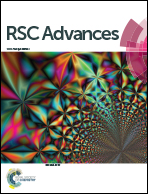Green integrated process for mitigation of municipal and industrial liquid and solid waste mixes for enhanced microalgal biomass and lipid synthesis for biodiesel
Abstract
Wastewater management has become one of the critical environmental challenges, as waste effluents from municipalities and industries including livestock farms are released into the environment resulting in the deterioration of water ecology, if left untreated. Through this study, we have developed a microalgae mediated green integrated process for wastewater remediation, while simultaneously producing biomass as potentially sustainable feedstock for biofuels. Chlorococcum sp. was cultivated in different types of wastewater and tested for nutrient remediation efficacy as well as biomass production. The results with respect to nutrient removal capacity in wastewater were encouraging as nitrogen was almost completely remediated, whereas removal percentages for carbon and phosphorous were between 67 and 89%. The results obtained using waste mixtures of wastewater effluents and poultry litter waste indicates substantial gain in microalgal biomass yield, an increase of more than 1.5-fold was observed as opposed to unsupplemented use. The obtained experimental microalgal growth data were fitted with a logistic growth model and found to provide a good fit between predicted values and investigated values. Furthermore, the lipid accumulation was enhanced by 2-fold in waste mixtures when compared to standard medium, and the lipids were mainly composed of C16 and C18 fatty acids, which are considered favourable for good-quality biodiesel. The strategy adopted in this study served the dual purpose of waste management and microalgal biomass production for biofuel application, thus making the entire process cost-effective and green.


 Please wait while we load your content...
Please wait while we load your content...